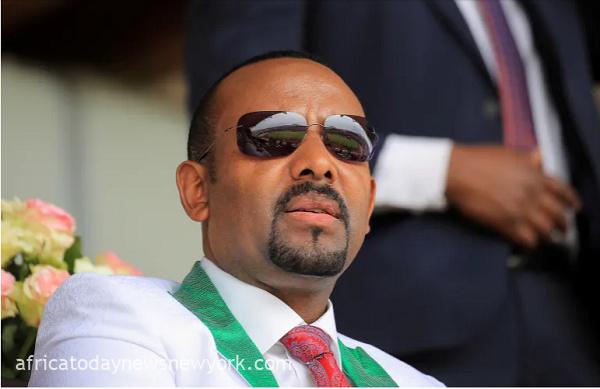The Prime Minister of Ethiopia, Abiy Ahmed has declared that they will not invade any neighbouring nation after his recent comments on a need for his country to own a sea outlet created disquiet in the region.
Addressing the nation at a square in the capital, Addis Ababa, to mark Army Day on Thursday, Mr Abiy said Ethiopia would “never invade” any country.
‘Our army has never initiated an attack and now we will not attack anyone,’ he said.
‘Fears have been voiced that there could be an invasion when Ethiopia recently stressed the need to discuss some issues… there is nothing whatsoever Ethiopia intends to achieve through invasion. I would like to strongly assure you that we will not pull a trigger on our brothers to attain our needs by force,’ the PM added.
Read Also: War Crimes Persist In Ethiopia Despite Peace Deal – UN
It comes a few days after Mr Abiy told legislators that securing a sea outlet was “a matter of existence” for his country.
Ethiopia became landlocked following Eritrea’s secession in 1993, and has since depended on Djibouti for over 85% of its imports and exports.
Ethiopia and Eritrea fought a two-year border war between 1998 and 2000.
Tensions were eased between the two countries in 2018 when Mr Abiy and President Isaias Afwerki of Eritrea signed a peace agreement.
In another report, experts from the United Nations have said in a report published on Monday that nearly a year after government and regional forces from Tigray agreed to end fighting, war crimes and crimes against humanity are still being committed in Ethiopia.
Africa Today News, New York reports that the two-year conflict, which officially ended in November of last year, claimed thousands of lives. Both sides accused one another of crimes against humanity, such as killings, rapes, and arbitrary detentions, but neither admitted to any systematic wrongdoing.
‘While the signing of the agreement may have mostly silenced the guns, it has not resolved the conflict in the north of the country, in particular in Tigray, nor has it brought about any comprehensive peace,’ Mohamed Chande Othman, chair of the International Commission of Human Rights Experts on Ethiopia, said in a statement accompanying the report.

